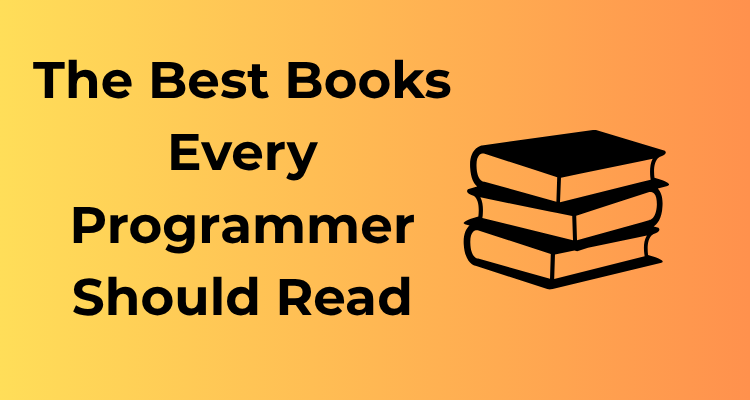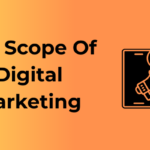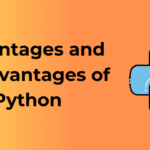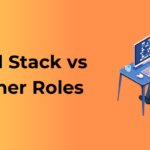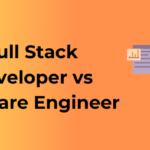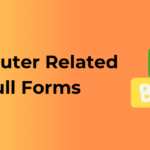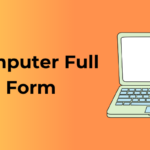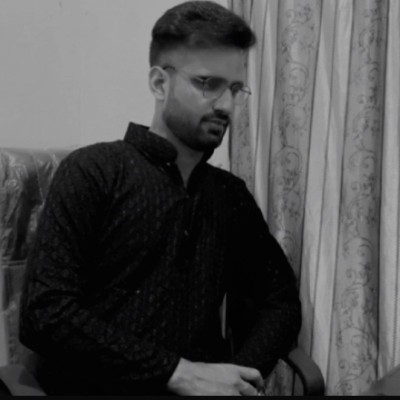When we think about becoming exceptional at anything, understanding the roots or foundations is crucial. Programming is no exception. The books in this category hold timeless wisdom that has shaped the programming world as we know it today. Whether you’re new to coding or a seasoned developer, these classics are treasures you won’t want to miss and surely help to overcome challenges.
Let’s dive into some of the foundational books that will supercharge your programming journey!
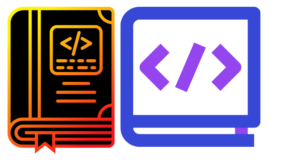
1. “The Mythical Man-Month” by Frederick P. Brooks
This book, often called the Bible of software engineering, delves into the complexities of managing software projects. Dating back to 1975, it introduced the concept that “adding manpower to a late software project makes it later.” Brooks shares invaluable experiences from his time working on the IBM OS/360 project, offering lessons in team management and project planning that are as relevant today as they were decades ago.
If you’ve ever been baffled by challenges in scaling a development team or handling deadlines, this book is for you. Plus, it’s packed with timeless insights on the human side of software creation.
2. “Structure and Interpretation of Computer Programs” by Harold Abelson and Gerald Jay Sussman
Often referred to as SICP (yes, it’s famous enough to have an acronym), this book has been groundbreaking for teaching programming fundamentals. It doesn’t just teach you to code; it pushes you to think about *why* and *how* programs work. Using Scheme (a dialect of Lisp), SICP dives deep into abstraction, algorithms, and software design.
The best thing? It teaches you to think like a computer scientist. While it requires some serious commitment, the rewards are immense. It’s no wonder this book has been a staple in computer science curriculums around the world.
3. “The C Programming Language” by Dennis M. Ritchie and Brian W. Kernighan
This one’s a rite of passage in the programming world! Known colloquially as “K&R” (a nod to the authors), this book serves as the original guide to the C programming language, co-authored by Ritchie himself, one of the creators of C. It’s more than just a tutorial—it’s a historical artifact that connects you to the birth of modern programming languages.
While you might not need C for your day-to-day work, understanding it laid the groundwork for so many programming concepts. Reading K&R fosters a deeper appreciation of programming’s evolution and equips you with an understanding of low-level programming.
4. “Algorithms” by Robert Sedgewick and Kevin Wayne
If you’ve heard someone say, “Data structures and algorithms are the bread and butter of programming,” they were not kidding. Sedgewick’s Algorithms is a gold standard. This book comprehensively covers everything, from elementary data structures to sorting, searching, and graph algorithms, breaking it down with step-by-step illustrations.
Even though it’s a bit technical, Sedgewick makes the content approachable, and it’s an absolute must-read for anyone hoping to gain mastery in computer science fundamentals.
5. “Design Patterns: Elements of Reusable Object-Oriented Software” by Erich Gamma, Richard Helm, Ralph Johnson, and John Vlissides
Known affectionately as the “Gang of Four” or GoF book, this masterpiece is all about creating software that’s both robust and maintainable. It introduces you to tried-and-tested patterns for object-oriented design, which are vital for writing reusable and scalable code.
And while design patterns might sound intimidating at first, this book walks you through each concept with clarity and practical examples you can revisit over and over. Once you grasp these patterns, you’ll start seeing them in action across various programming languages.
Mastering the Art of Clean Code Writing
Have you ever opened some code and thought, “What in the world is going on here?” You’re not alone! Writing clean and maintainable code is one of the most important skills a programmer can develop. Not only does it make your own life easier, but it also spares your teammates (and future you) countless headaches. Let’s dive into some excellent books that can help you master this crucial art!
1. “Clean Code: A Handbook of Agile Software Craftsmanship” by Robert C. Martin (Uncle Bob)
This book is the holy grail of clean coding advice. Seriously, it should almost be required reading for all software developers. Uncle Bob does an incredible job of breaking down what separates great code from merely functional code. This book is packed with practical tips on everything from naming variables to designing functions and systems.
Key Takeaways:
- Write code for humans, not just computers — readability is key.
- Keep your functions small and focused on a single task.
- Refactor code regularly to avoid technical debt building up.
If you haven’t read “Clean Code” yet, add it to your list and prepare to level up your coding standards.
2. “The Clean Coder: A Code of Conduct for Professional Programmers” by Robert C. Martin
Also by Uncle Bob, this book goes beyond clean code style and dives into what it means to act like a professional programmer. While technical skills are part of the equation, professionalism also covers how you communicate, meet deadlines, and collaborate with your team. This book is fantastic for helping you develop the right mindset for quality and responsibility.
Key Takeaways:
- Say “no” when you need to — professionalism means knowing your limits.
- Take responsibility for writing tests and delivering high-quality work.
- Master time management and respect deadlines.
This book complements “Clean Code” beautifully by focusing on the soft skills needed to produce and maintain excellent code.
3. “Code Complete: A Practical Handbook of Software Construction” by Steve McConnell
Steve McConnell’s “Code Complete” is a treasure trove of knowledge for writing clean, high-quality code. While it covers much more than just writing clean code, its chapters on naming conventions, code layout, and collaboration make it a must-read for elevating your craft.
Key Highlights:
- Learn how to structure your code for clarity.
- Understand the importance of creating low-maintenance solutions.
- Discover development practices that reduce common bugs.
If you’re looking for a comprehensive guide to software construction, this book will become your new best friend. It’s like a coding mentor you can keep on your shelf.
Books for Leveling Up Problem-Solving Skills
Programming is as much about solving problems as it is about writing code. In fact, sharpening your problem-solving skills can have a transformative impact on your performance as a programmer. Whether you’re preparing for coding interviews, tackling real-world challenges at work, or simply honing your critical thinking, there are several standout books that can arm you with the tools, strategies, and confidence to approach problems methodically.
1. “Cracking the Coding Interview” by Gayle Laakmann McDowell
If you’re gearing up for technical interviews at top tech companies, this book is an absolute must-have. Packed with 189 programming questions and solutions, it takes you on a deep dive into problem-solving strategies, algorithms, and common patterns found in coding interviews. It bridges the gap between theory and practical implementation, making it a real powerhouse for those who want to both practice and understand the “why” behind solutions.
Why it’s a game-changer: This book isn’t just about solving problems but also about understanding what interviewers are looking for and how you can articulate your thought process effectively.
2. “Algorithm Design Manual” by Steven S. Skiena
Do you want to think like a problem-solver first and a coder second? Then Skiena’s “Algorithm Design Manual” will be your holy grail. It’s not just a dense reference guide for algorithms but also a book filled with real-world examples and advice to develop your analytical thinking. The problem catalog is a treasure trove of scenarios that encourage you to take a step back, strategize, and explore solutions beyond the surface level.
What makes it unique: Its conversational style and practical focus on understanding tradeoffs in algorithms make this the perfect resource for anyone looking to evolve from “coder” to “algorithmic thinker.”
3. “Elements of Programming Interviews” by Adnan Aziz, Amit Prakash, and Tsung-Hsien Lee
If you’re looking for a book that combines theoretical concepts with hands-on practice, this is it. With coding puzzles, data structures, and scenarios to simulate real problems faced by software engineers, this book is designed to make you feel comfortable tackling challenges head-on.
Pro tip: Follow along with the provided Python, Java, or C++ code snippets to strengthen your implementation skills. Remember, the key to great problem-solving is not just about finding the answer but also about writing clean, functional code to support it.
Why Problem-Solving Books Are Indispensable
- They sharpen your logic: Problem-solving literature helps you break down problems into digestible parts, making complex tasks less overwhelming.
- They uncover patterns: Many problems follow recurring patterns. Recognizing these patterns is a skill that sets experienced programmers apart, and books like these help to train that muscle.
- They boost your confidence: The more you practice and master problem-solving, the more confident you’ll be when an unfamiliar challenge comes your way.

Expanding Your Knowledge Beyond Coding
As a programmer, it’s easy to fall into the rabbit hole of code, frameworks, and algorithms. But here’s a little secret: the best programmers not only know how to code but also understand the world outside of it. After all, software is built to solve real-world problems, and expanding your knowledge beyond coding opens doors to new perspectives and skills. Let’s explore some of the books that can make you a more well-rounded developer by venturing into diverse but insightful territories!
1. Understanding People and Communication
Programming is often seen as a solitary activity, but in reality, it’s highly collaborative. You work with teammates, clients, and stakeholders, and effective communication is critical. One must-read for improving your interpersonal and communication skills is “Crucial Conversations” by Kerry Patterson et al. This book teaches strategies to handle high-stakes conversations with confidence and clarity. Trust me, mastering these skills will make you not just a better programmer but a valued team player.
2. Dive Into Psychology to Predict User Behavior
Are you designing user-facing applications? Then you’d want to understand human behavior! “Don’t Make Me Think” by Steve Krug is a fantastic primer on usability and user experience design. It offers practical advice on creating intuitive interfaces that cater to how people think, not how machines work. Dive deeper with “Thinking, Fast and Slow” by Daniel Kahneman to explore cognitive biases and how humans make decisions—insights that can shape the way you design systems and products.
3. Explore the Business and Management Worlds
Even if you’re not managing a team or running a business, understanding how the tech and business ecosystems intersect is invaluable. Books like “The Lean Startup” by Eric Ries expose you to product development strategies, iterative processes, and the importance of adapting to customers’ needs. Meanwhile, “Measure What Matters” by John Doerr introduces the concept of Objectives and Key Results (OKRs), a goal-setting framework widely used in tech companies. These books help you see beyond the code and understand the “why” behind what you build.
4. Broaden Perspectives Through Science and History
To innovate for the future, it’s worth understanding the past and looking at science beyond computers. “The Innovators” by Walter Isaacson is a fascinating journey into the history of technology, showcasing how computer science pioneers shaped the world we know today. For the scientifically curious, consider “Sapiens: A Brief History of Humankind” by Yuval Noah Harari—it connects the dots between our evolutionary traits and societal progress, providing insights that can enrich your problem-solving toolkit.
5. Think Like a Systems Architect
To design scalable and maintainable systems, step back and reflect on systems thinking. One go-to resource is “Thinking in Systems: A Primer” by Donella H. Meadows. This book explains the dynamics of interconnected systems in an easy-to-follow way, helping you apply similar structures to software architecture or even team workflows. It enhances your mindset and positions you to solve not just coding problems but systemic challenges.
Programming Books Highly Recommended by Experts
If you’ve ever wondered which books seasoned programmers reach for time and time again, you’re in the right place! The programming landscape evolves rapidly, but some books consistently land on expert recommendation lists for a reason. These are the books that challenge the way you think about code, deepen your understanding of the field, and provide actionable takeaways to use in your daily work. Let’s dive into the must-reads that top developers swear by!
Why Listen to Expert Recommendations?
Simply put, experts have walked the road many of us are navigating. Their recommendations often come from years of experience, trial and error, and firsthand application in real-world scenarios. The books they stand behind frequently bridge gaps in knowledge, cover best practices, or offer perspectives that can accelerate your growth as a developer. So, when experts rave about a book, it’s worth paying attention!
Top Expert-Recommended Picks
- “The Pragmatic Programmer” by Andrew Hunt and David Thomas: Often considered a timeless classic, this book goes beyond coding and dives into essential soft and technical skills. It teaches you how to think strategically about your code, adapt to the rapidly changing tech landscape, and become a well-rounded developer.
- “Design Patterns: Elements of Reusable Object-Oriented Software” by Erich Gamma, Richard Helm, Ralph Johnson, and John Vlissides: Commonly known as “The Gang of Four,” this book is a go-to resource for understanding design patterns. Experts recommend it for mastering object-oriented principles and building more scalable, maintainable code.
- “You Don’t Know JS” (series) by Kyle Simpson: This series completely unpacks JavaScript at a deeper level. Experts love it because it’s not just about syntax but understanding the “why” and “how” behind it. It’s ideal for serious JavaScript developers looking for precision and mastery.
- “Working Effectively with Legacy Code” by Michael Feathers: One of the most influential books if you’re tackling legacy systems (and let’s face it, who isn’t?). Experts highlight this book as a survival guide for working with older codebases, teaching you tools and strategies to refactor with confidence.
- “Code Complete” by Steve McConnell: Hailed as a comprehensive guide to software development, this book is packed with practical methods for improving your coding. Experts often describe it as a manual for writing high-quality, efficient, and maintainable code.
What Makes These Books Special?
These books aren’t just instructional – they convey wisdom. They are packed with insights developed by pros who’ve been in the trenches, working on everything from enterprise applications to groundbreaking software innovations. What sets these recommendations apart is their depth and staying power. Many of these books were written years ago but remain just as relevant today, which speaks volumes about their quality and impact.
Bridging Gaps Between Computer Science Theory and Practice
Hello, curious coder! Let’s talk about the fascinating yet sometimes challenging journey of connecting the dots between theoretical computer science and practical, real-world programming applications. Have you ever wondered how the deep intricacies of algorithms, data structures, or computation theory we learn in books or university classes translate to the code you write today? Well, this section is all about helping you bridge that gap with some indispensable reads that turn abstract concepts into actionable skills.
Understanding computer science theory is like knowing the rules of a game—it’s foundational. Put it into practice, and you’ll see its relevance elevate your programming ability to new heights. Below, you’ll find a handpicked selection of books that beautifully marry theory with practice, ensuring you can seamlessly apply what you learn to actual projects. Let’s dive in!
Must-Read Books to Bridge the Gap
- “Introduction to the Theory of Computation” by Michael Sipser: This masterpiece makes the fundamental principles of computation theory, like automata, Turing machines, and computational complexity, understandable and engaging. It’s perfect if you’re looking to answer questions like “What’s possible to compute?” and “What can’t be optimized?”
- “Algorithms to Live By” by Brian Christian and Tom Griffiths: You don’t need to be an algorithm wizard to appreciate this book. It takes algorithms from textbooks and shows how they are deeply connected to real-life decision-making. It’s intelligent, practical, and wonderfully accessible.
- “The Algorithm Design Manual” by Steven S. Skiena: Don’t let the name mislead you—this isn’t just a manual. Skiena focuses on solving actual programming problems with advice that blends technical weight with practicality. Plus, the “war stories” are both fun and incredibly informative.
- “Modern Operating Systems” by Andrew S. Tanenbaum: Ever wondered how the operating system interacts with the programs you write? Tanenbaum’s book gives you a clear understanding of the behind-the-scenes mechanisms that keep everything running smoothly.
- “Computer Architecture: A Quantitative Approach” by John L. Hennessy & David A. Patterson: This is the gold standard for understanding how hardware and software interact. Perfect for when you’re serious about deepening your understanding of systems beneath the abstractions.
Why This Approach Matters
Some new programmers jump straight to coding without realizing that computer science theory is the backbone of programming. Conversely, others get trapped in theory without ever applying it, which can make it feel irrelevant. These books are here to help you avoid both pitfalls by:
- Teaching you the “why” behind the code.
- Showing you real-world scenarios where theory applies directly.
- Helping you gain confidence in tackling challenges that require technical depth.
Underrated Gems Every Programmer Should Consider
When it comes to programming books, it’s easy to get swept up in the buzz around big-name titles that dominate bestseller lists. But sometimes, the most valuable insights come from books that don’t often make it onto these lists. Today, let’s uncover some truly underrated gems that every programmer—beginner or advanced—should consider diving into. These aren’t just fun reads; they could very well change the way you think and work.
1. ‘The Pragmatic Programmer: From Journeyman to Master’ by Andrew Hunt and David Thomas
You might be wondering, “Isn’t this a popular book?” Yes, but here’s the catch: although it’s widely celebrated, many programmers still overlook it in favor of newer titles. This book isn’t just about programming; it’s about the craft of programming. It covers everything from debugging and testing to code hygiene. What’s fascinating about it is its age-old lessons that are still crucial today. If it’s been sitting in your ‘someday’ pile, it’s time to dust it off!
2. ‘Learn You a Haskell for Great Good!’ by Miran Lipovača
If you’re ready to step out of your programming comfort zone, this delightfully quirky introduction to Haskell is the way to go. The fun illustrations and playful tone make learning functional programming concepts approachable—even for absolute beginners. Many programmers shy away from niche languages like Haskell, but understanding its core principles can sharpen your problem-solving skills like nothing else.
3. ‘Working Effectively with Legacy Code’ by Michael Feathers
Let’s face it: most of us aren’t always working on brand-new codebases. Legacy code can be a dreaded part of the job—but this book flips the narrative. Michael Feathers teaches strategies to improve, maintain, and refactor legacy codebases. The techniques shared in this book will make you feel like a software archeologist uncovering hidden treasures and optimizing them for the modern era.
4. Software Design: The Disco Ball of Programming Literature
If you’re curious about finding books that give enchanting and real-life development **examples**, start with modern-era openings. Digging into open coding structures without using the mainstream approach sharpens your algorithm focus.

